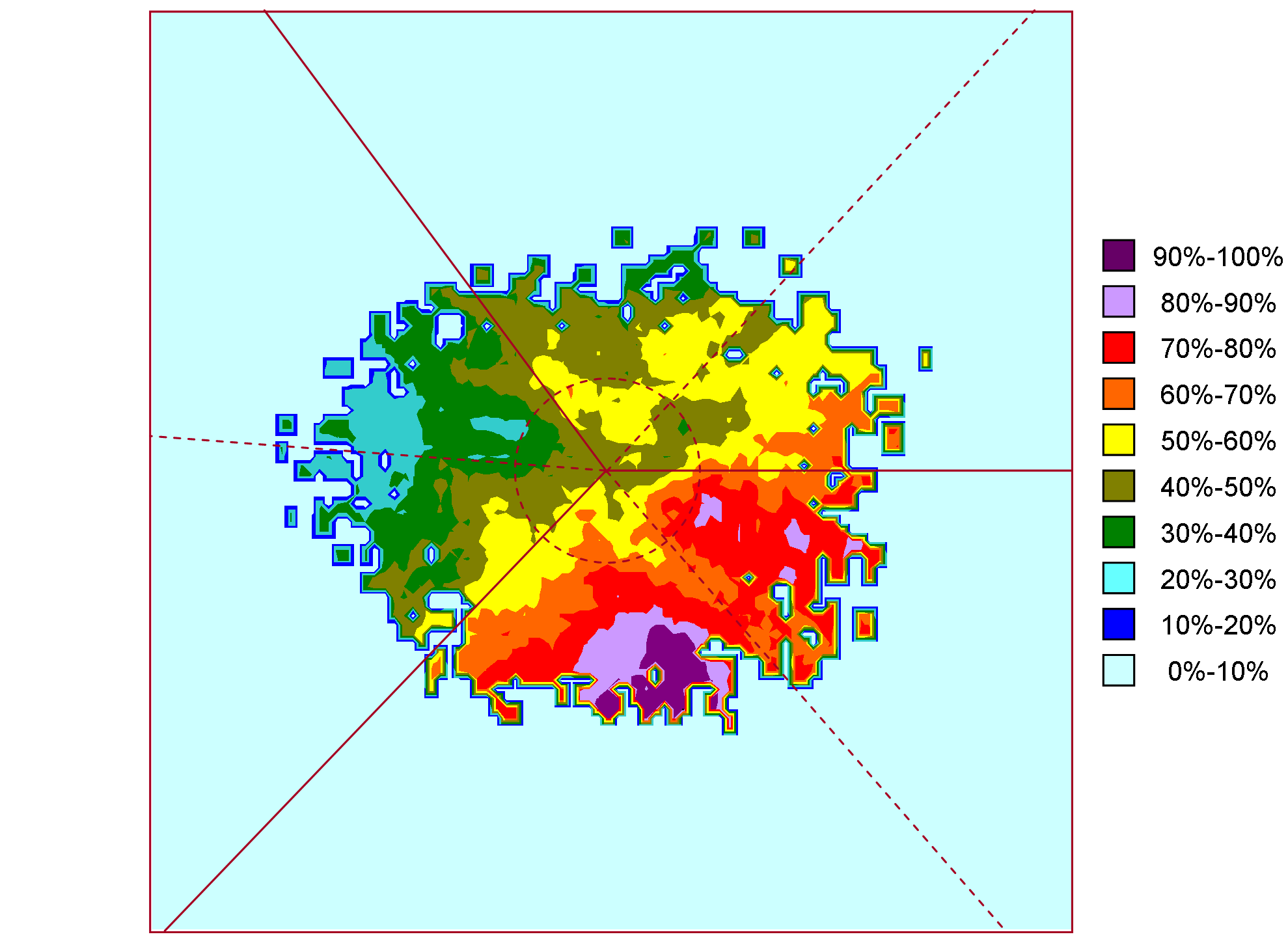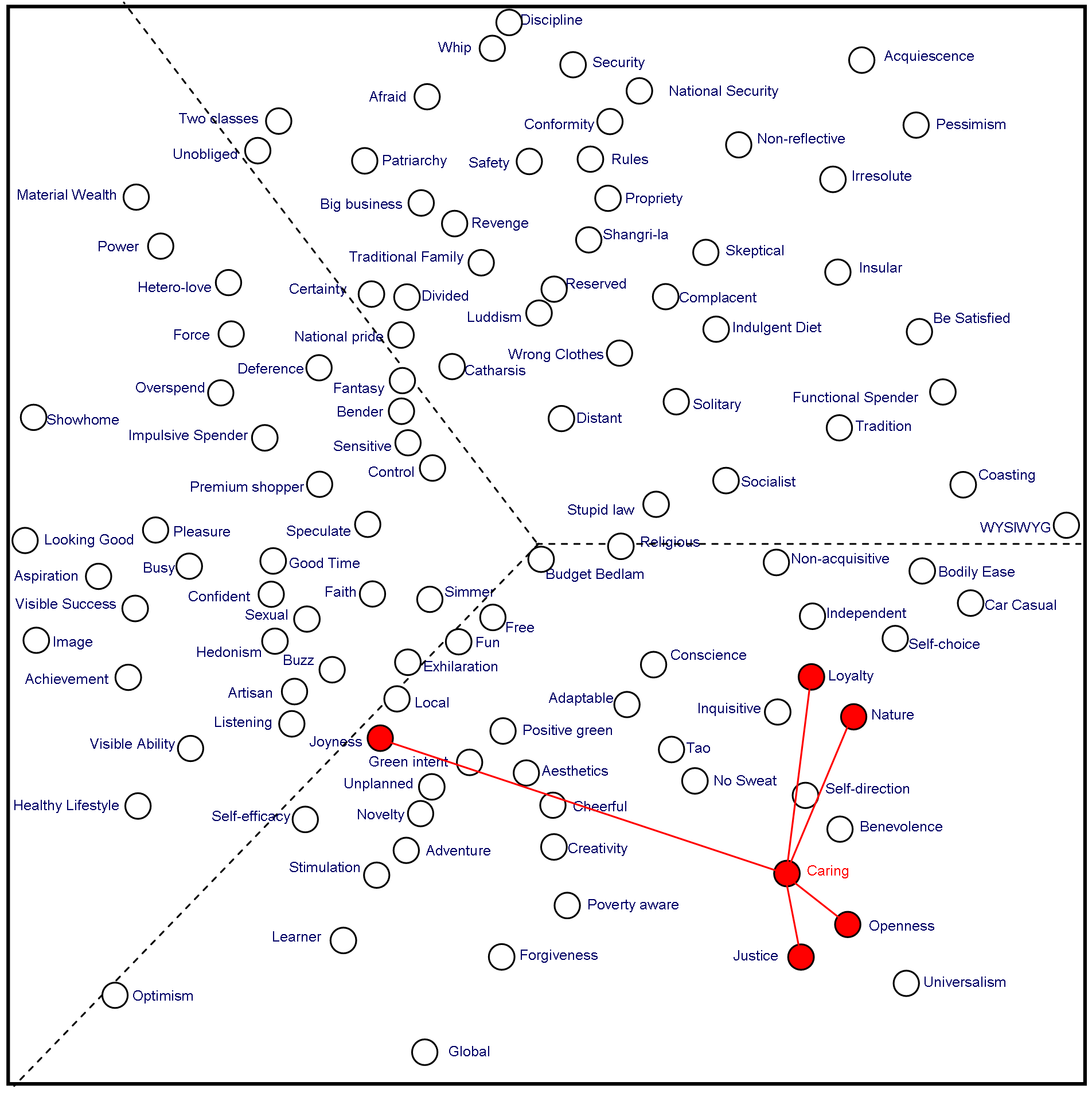

CARING
 |
It is important to me to help people around me. I want to care for other people.
Espousers of the Caring Attribute can seem too good to be true. They can present as the too-good-to-be-true ‘do gooder’ who seems to be involved in everything from the PTA to Neighbourhood Watch or as the ‘hippy-dippy peace and love’ 1960s throwback depending on one’s own Attribute espousal patterns.
The key to understanding Caring espousers is a recognition that what drives their behaviour is both a well-developed capacity for empathy and an ability to seek out and live in what has been described elsewhere as ‘peak experience’ – a sense of deep satisfaction and reward that comes from meeting their need to care. There is nothing altruistic about this behaviour. It is as needs-driven as all other behaviour. Charity activists and regular donors, especially if those charities work for human rights or ‘green’ issues, will score high on this Attribute.
The Caring espouser sees him- or herself as a ‘child of the universe’, part of an interconnected web of life. This outlook gives them the capacity to empathise with the needs of others in diverse cultures and at some distance from them as easily as they can with the older person next door who may need help with their shopping. It will come as no surprise that espousers of this Attribute also score highly on ‘green’ Attributes. To them, the earth is our common home and we are all its children. It is this openness of approach – their capacity for inclusiveness and their empathy – that defines their caring.
It is important to understand that the ‘peak experience’ sense of satisfaction and joy which is the Caring Attribute espouser’s ‘reward’ is very different from that described in the Buzz Attribute, which delivers an almost galvanic jolt of excitement. In contrast, the Caring espouser’s ‘joy’ should be understood as a sense of rightness and completion which is delivered by the Caring behaviour. The phrase ‘a warm glow’ well describes its almost visceral nature.
Caring and its associated Attributes can be described as ‘feminine’ as opposed to more ‘masculine’ behaviours of competition, acquisition and display. It is an Attribute currently over-represented in women (63.4%) and in women over 35. It would be difficult not to recognise some correlation with motherhood – but the nurturing aspects of parenthood would be a more accurate way to describe it. Caring espousers feel a responsibility to both the planet we all share and its people – they strive to be both good children and good parents.
Caring espousers are finely tuned to recognise and challenge injustice wherever and however it may manifest itself. They believe in equality of opportunity and will tend to ‘see’ people in terms of values which are shared rather than those in conflict. They are ‘yes, and …’ people rather than ‘yes, but …’ people. Some can be prescriptive in terms of appropriate behaviour and insist on ‘living their principles’: this can lead to what has been called a ‘logjam of violent agreement’ as they insist that what is done is done ‘the right way’ (ie, their way). The Green movement and its historic ambivalence about engagement with power structures of any kind provides an illustration of this.
Using CaringDemographic Skews: 1) Over-indexed: Female, 63.4%; over 35s (over 70%) 2) Under-indexed: Male, 36.6% 3) Not ‘class’ specific – equal spread across all socio-economic groups Caring espousers also espouse other Attributes. The top five most highly correlated Attributes of Caring espousers are, in order of the strength of relationship: 1) Openness In total those who espouse Caring also over-index significantly on 42 other Attributes. |
|
If "Caring" (or the associated attributes) are important to you and you would like to delve more deeply, contact us at mail@cultdyn.co.uk
